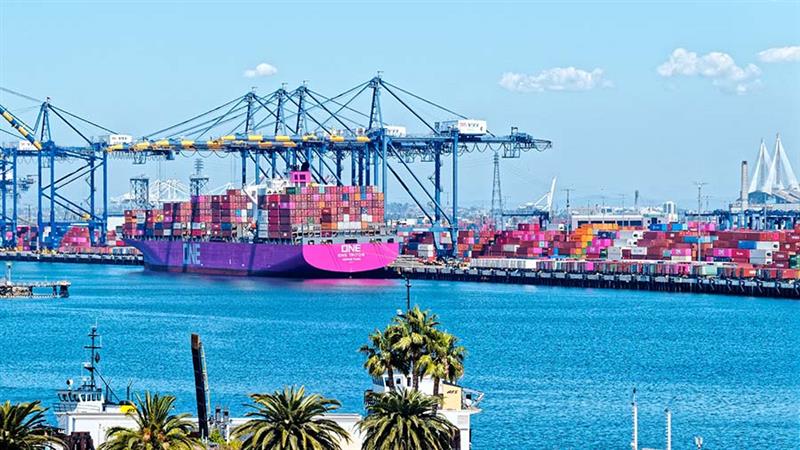China Releases Circular to Promote the Steady Growth of Imports and Exports
Nov. 4 – China’s State Council released the “Opinions on Promoting the Stable Growth of Imports and Exports and Adjusting the Structure Thereof (guobanfa [2013] No.83, hereinafter referred to as the ‘Opinions’)” on July 23, which put forward several measures to promote the stable growth of the country’s imports and exports. Detailed information can be found below.
China’s foreign trade situation has become severe and complicated since the beginning of 2013, with import and export growth slowing down, while problems hindering the development of foreign trade are increasing. As a result, China has made it an urgent task to accelerate the transformation of the country’s foreign trade development mode, and the Opinions have put forward the following measures to promote the stable import and export growth:
Adjusting the fees and catalogue of statutory export inspection
The statutory inspection fees for export goods shall be exempted from August 1, 2013 till the end of 2013. Moreover, the types of exports subject to statutory inspection shall be reduced, and manufactured industrial goods shall no longer be subject to statutory export inspection.
Strengthening the support for export tax refunds
It is essential to further improve the efficiency of the tax refund review and facilitate tax refund procedures, thereby guaranteeing timely and complete tax refunds.
Promoting RMB settlement for cross-border trade
The scale of RMB settlement for cross-border trade shall be expanded, and the business processes thereof shall be streamlined.
Improving financing services
Financial institutions shall be encouraged to disburse loans to profitable enterprises in accordance with the principle of “controllable risks and sustainable business.”
Strengthening credit insurance support
Development of the short-term export credit insurance business shall be encouraged and the size and coverage of export credit insurance shall be expanded. Meanwhile, the support for micro, small and medium-sized enterprises shall be stepped-up.
Improving the formation mechanism of RMB exchange rate
The formation mechanism for the central parity rate of RMB shall be improved and efforts shall be made to keep RMB exchange rate stable at a reasonable level. Moreover, financial institutions shall be encouraged to develop hedging products to help enterprises avoid the risks of exchange rate fluctuations.
Raising the trade facilitation level
The reform plan of “one declaration, one inspection and one approval” shall be introduced as soon as possible. Moreover, efforts shall be made to formulate streamlined customs clearance measures based on the credit records of enterprises, so as to improve the effectiveness of customs inspection and speed up customs clearance. Moreover, the types of goods subject to automatic import and export licensing shall be reduced, and the licensing application procedures shall be simplified to provide convenience to foreign trade enterprises.
Fine-tuning various trade methods
The policies for border trade development shall be fine-tuned and the scale of border trade shall be expanded.
Accelerating the development of private foreign trade enterprises
Efforts shall be made to improve services for the import and export business of small and medium-sized enterprises (SMEs) and to support private enterprises to conduct restructuring and engage in mergers and acquisitions. Moreover, the export business of SMEs shall be provided with customs clearance, financing, tax refunds and other services.
Exploring international markets
The funds for SMEs to explore international markets shall be increased, and enterprises shall no longer be subject to examination and approval for conducting commercial activities overseas.
Increasing imports
- The range of products that are entitled to import subsidies shall be expanded and the amount of import subsidies shall be increased;
- Enterprises shall be encouraged to import advanced equipment and technologies;
- Import of services shall be gradually expanded;
- Crude oil processing enterprises that meet the standards on quality, environmental protection, safety and energy consumption shall be granted the qualifications for import and use of crude oil; and
- International cooperation in natural gas shall be actively promoted.
Dezan Shira & Associates is a specialist foreign direct investment practice, providing corporate establishment, business advisory, tax advisory and compliance, accounting, payroll, due diligence and financial review services to multinationals investing in emerging Asia. Since its establishment in 1992, the firm has grown into one of Asia’s most versatile full-service consultancies with operational offices across China, Hong Kong, India, Singapore and Vietnam as well as liaison offices in Italy and the United States.
For further details or to contact the firm, please email china@dezshira.com, visit www.dezshira.com, or download the company brochure.
You can stay up to date with the latest business and investment trends across Asia by subscribing to Asia Briefing’s complimentary update service featuring news, commentary, guides, and multimedia resources.
Related Reading
 Selling to China
Selling to China
In this issue of China Briefing Magazine, we demystify some complexities of conducting business in China by introducing the main certification requirements for importing goods into the country; the basics of setting up a representative office; as well as the structure and culture of State-owned enterprise in China. Finally, we also summarize some of the export incentives available in several key Western countries.
 Trading With China
Trading With China
This issue of China Briefing Magazine focuses on the minutiae of trading with China – regardless of whether your business has a presence in the country or not. Of special interest to the global small and medium-sized enterprises, this issue explains in detail the myriad regulations concerning trading with the most populous nation on Earth – plus the inevitable tax, customs and administrative matters that go with this.
China’s Import and Export Licensing Framework
Import-Export Taxes and Duties in China
China Becomes World’s Largest Trading Nation, Passes United States
How to Sell to China – The Initial Evaluation Process
- Previous Article China Clarifies Corporate Income Tax Reductions and Exemptions for Technology Transfers
- Next Article New Issue of China Briefing: Social Insurance in China



























